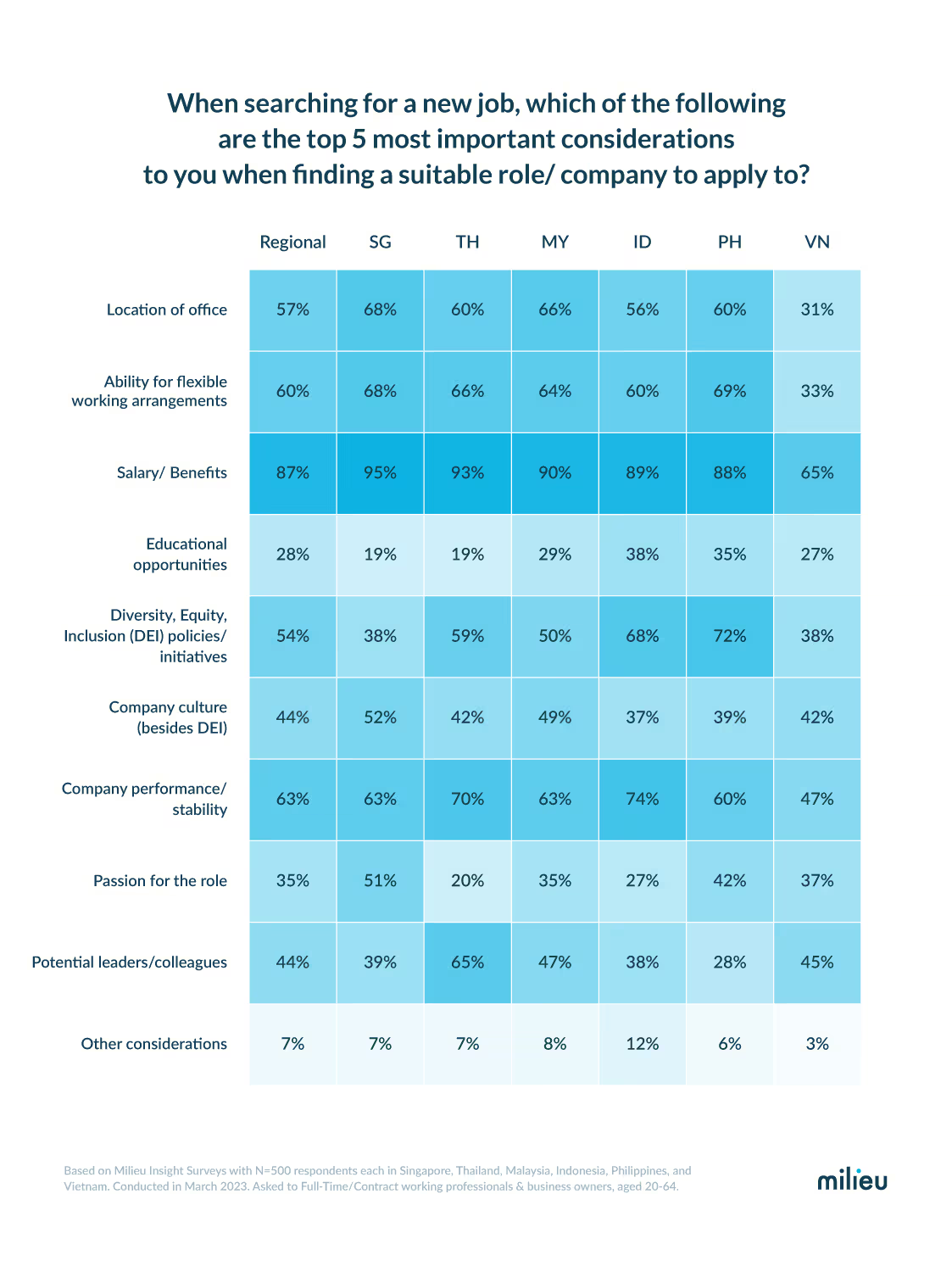Breaking Barriers: Diversity and inclusion in SEA workplaces.
.avif)
In recent years, there’s been tremendous growth in diversity, equity, and inclusion initiatives - While many have eagerly embraced these efforts, some have criticised and opposed them. Inclusion encompasses more than just hiring individuals from diverse ethnicities, races, and socioeconomic backgrounds.
Our recent regional study has found that workers in Singapore and Malaysia are among the least satisfied within the Southeast Asia region with regards to their company's efforts to foster workplace diversity, equity, and inclusion (DEI).
The survey polled n=3,000 working professionals and business owners across six Southeast Asian countries, and only 49% of workers in the region believed that their company actively considers workplace diversity in its recruitment/hiring practices. This number drops even further in Singapore and Malaysia, where workers are more skeptical about the existence of equal opportunities for all employees, with 27% and 23% respectively disagreeing that such opportunities exist. Additionally, the survey found that only 22% of workers in Singapore feel that their company's Diversity, Equity, and Inclusion (DEI) training programs are effective, which is notably lower than the regional average of 40%.

The results also revealed that workers in Singapore and Malaysia are less likely to believe that all employees are appraised equally - About one in four of those surveyed in Singapore (27%) and Malaysia (23%) somewhat-strongly disagreed when asked if they feel that all employees in their company are held to the same performance standards, regardless of their background or status. Consequently, workers in Singapore and Malaysia express the least satisfaction within the region regarding their company's efforts to foster workplace DEI.

On the other hand, 71% of workers in Vietnam, 63% in Indonesia, and 61% in Thailand feel that there are equal opportunities for all employees at their workplace. The results also show that 68% of workers in Vietnam and 53% in the Philippines believe their companies have effective policies and procedures that promote workplace diversity.
Another notable finding from the study is that, on average regionally, DEI policies and initiatives rank among the top 5 most important considerations when searching for a suitable role or company, ahead of potential leaders/colleagues, passion for the role and educational opportunities.
· Salary/Benefits - 87%
· Company performance/stability - 63%
· Flexible working arrangement - 60%
· Ability for flexible working arrangement - 60%
· Diversity, Equity, Inclusion (DEI) policies/initiatives - 54%
As the talent landscape becomes increasingly competitive, an organization’s culture is a crucial factor in attracting candidates and keeping current employees satisfied. It is clear that there is still much work to be done in Southeast Asia to create a more inclusive and equitable workplace. Leaders should view inclusion not only as a moral obligation but also as a strategic business imperative and an essential element of the organizational culture.

Methodology
This survey was conducted via Milieu’s proprietary survey community with N=3,000 Full-Time/Contract working professionals & business owners, aged 20-64 in Singapore (N=500), Thailand (N=500), Malaysia (N=500), Indonesia (N=500), Philippines (N=500), and Vietnam (N=500). The data was collected in March 2023.
Milieu Insight stands as an acclaimed marketing research agency and online panel community in Singapore, committed to aiding businesses in navigating a data-driven landscape. Additionally, explore how an employee engagement survey functions today.
.avif)

.png)
.png)
.png)

